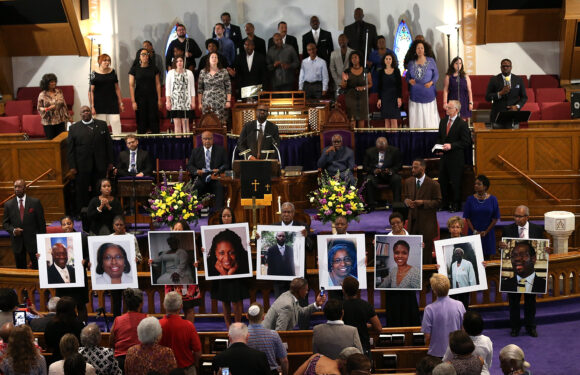The US Supreme Court declined a chance to open social media companies to lawsuits over content recommended by their algorithms, turning away an appeal that accused Meta Platforms Inc.’s Facebook of radicalizing a man who killed nine South Carolina churchgoers.
The rebuff ends a lawsuit filed by the daughter of Reverend Clementa Pinckney, one of the nine people murdered by white supremacist Dylann Roof in 2015 at a historically Black church in Charleston, South Carolina. Two lower courts had thrown out the suit.
The appeal took aim at Section 230, a provision enacted in 1996 that protects social media platforms and other internet companies from being sued over content posted by their users.
Pickney’s daughter, known in court papers only as M.P., contends Facebook’s algorithms used his internet history as a basis to connect him with communities that cultivated his views and made them more extreme. M.P. was at the church during the shooting, hiding under a desk with her mother. Meta denies any wrongdoing.
Section 230 has drawn criticism from both sides of the aisle. Some liberals say it lets platforms ignore hate speech and extremism.
Conservatives have complained in the past that Section 230 shields platforms that censor right-wing voices. Tech giants have become more accommodating to conservatives since President Donald Trump recaptured the White House, with several companies reaching settlements to resolve years-old legal fights with him.
Alphabet Inc.’s Google recently agreed to pay $24.5 million to resolve Trump’s claims over being suspended from posting on his YouTube channel following the Jan. 6, 2021, Capitol riot.
The Supreme Court considered narrowing Section 230 immunity in 2023 in a pair of cases involving terrorist content. The court instead sidestepped the Section 230 issue while narrowing the use of a federal anti-terrorism law to press suits.
The case is M.P. v. Meta, 24-1133.
Photo: Photographs of the nine victims killed at the Emanuel African Methodist Episcopal Church in Charleston, South Carolina during a prayer vigil at the the Metropolitan AME Church in Washington in 2015.
Topics Lawsuits
Was this article valuable?
Here are more articles you may enjoy.



 Florida Regulators Crack the Whip on Auto Warranty Firm, Fake Certificates of Insurance
Florida Regulators Crack the Whip on Auto Warranty Firm, Fake Certificates of Insurance  State Farm Adjuster’s Opinion Does Not Override Policy Exclusion in MS Sewage Backup
State Farm Adjuster’s Opinion Does Not Override Policy Exclusion in MS Sewage Backup  How One Fla. Insurance Agent Allegedly Used Another’s License to Swipe Commissions
How One Fla. Insurance Agent Allegedly Used Another’s License to Swipe Commissions  US Supreme Court Rejects Trump’s Global Tariffs
US Supreme Court Rejects Trump’s Global Tariffs 

